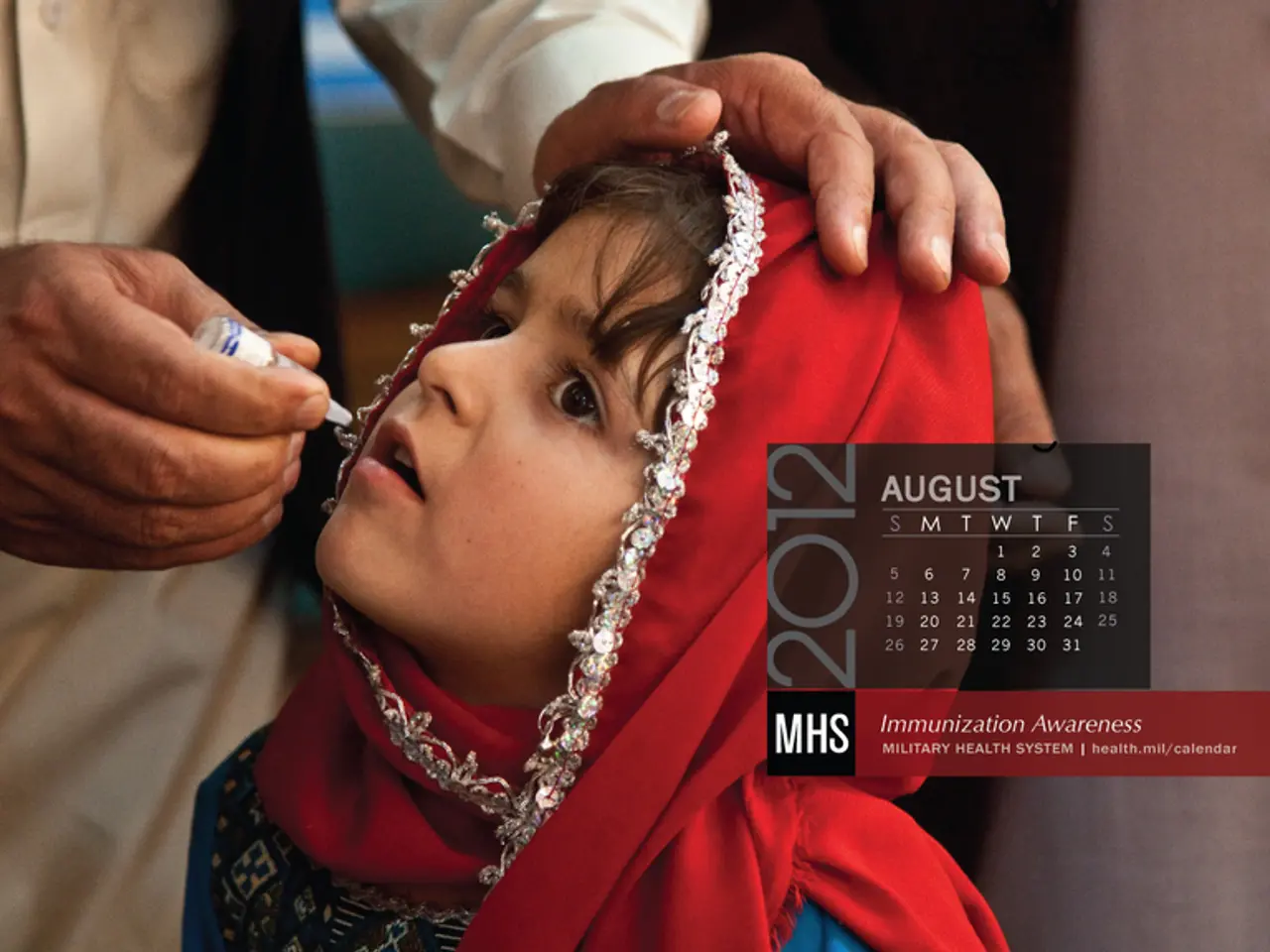States and cities are at risk of losing their vaccination programs and staff due to perplexing reductions in federal funding.
Funding Cuts to US Vaccination Programs Raise Concerns Over Public Health
The US Department of Health and Human Services (HHS) has been accused of dismantling the country's vaccination infrastructure, following a series of funding cuts to state and local vaccination programs. The cuts, driven by federal budget reductions, have raised concerns among public health advocates about the potential impact on vaccination rates and the subsequent rise in infectious diseases.
In a move that has sparked controversy, about 40 out of 66 jurisdictions awarded federal immunization funding this year received awards lower than their funding targets. Notable recipients of lower-than-expected funding awards include Washington, Massachusetts, Colorado, California, Illinois, Michigan, and New York. As a result, cities like Chicago are preparing to lay off immunization workers, and the city of New Haven, Connecticut, has already had to do so.
The funding reductions come amidst an ongoing outbreak of measles in the US, which has claimed three lives and threatens to end the country's elimination status. Moreover, more than 10,000 Americans have been sickened by pertussis (whooping cough) this year, and five children have died.
The CDC sent out a Notice of Funding Opportunity to states, territories, and certain large cities in January 2025, but the HHS has pulled millions of dollars from these programs with no explanation. HHS Director of Communications Andrew Nixon claimed the reviews were part of agency cost-cutting efforts, but the delays in funding have left affected programs concerned they will have to cut staffers and services due to the shortfall.
Public health advocates argue that these funding cuts are deliberate and will starve state and local public health budgets, leading to a dismantling of the public health safety net. They blame the funding cuts for the ongoing outbreaks of measles and pertussis, as well as the increased strain on healthcare systems due to the rise in hospitalizations and emergency care needs.
The Covid money clawback alone has led to the elimination of 579 staff positions in state vaccination programs. This, combined with the higher out-of-pocket costs for vaccines due to changes in federal recommendations and increased vaccine prices, has already shown a drop in vaccination rates.
The majority of the money spent by states on vaccination comes from federal grants appropriated by Congress under Section 317 of the Public Health Services Act. However, these grants have been significantly reduced, making vaccines less accessible and affordable, particularly for low-income and underserved communities.
The potential impact of these funding cuts on vaccination rates is considerable and concerning. Lower vaccination rates contribute to higher incidences of infectious diseases, causing preventable illness and deaths, especially among children, the elderly, and immunocompromised individuals. Furthermore, treating infectious diseases is more expensive than preventing them through vaccination, so funding cuts may ultimately lead to higher overall health costs.
In summary, the funding cuts are mainly a consequence of federal budget decisions aimed at reducing HHS’s role and expenditures, and these cuts risk lowering vaccination rates by making vaccines less affordable and accessible, leading to more outbreaks and greater public health burdens. Public health advocates warn that these funding reductions at a critical time when outbreaks are occurring could reverse past public health gains, increase preventable diseases, and jeopardize the health of millions of Americans, particularly vulnerable populations who rely on federally supported vaccination programs.
- Concerns about the impact of science and medical-conditions on health and wellness have been amplified as a result of funding cuts to state and local vaccination programs, leading public health advocates to question the potential rise in infectious diseases such as measles and pertussis.
- The funding reductions to health-and-wellness programs, including vaccination, could lead to a dismantling of the public health safety net, making vaccines less accessible and affordable, particularly for low-income and underserved communities, potentially causing preventable illnesses and deaths, especially among children, the elderly, and immunocompromised individuals.




